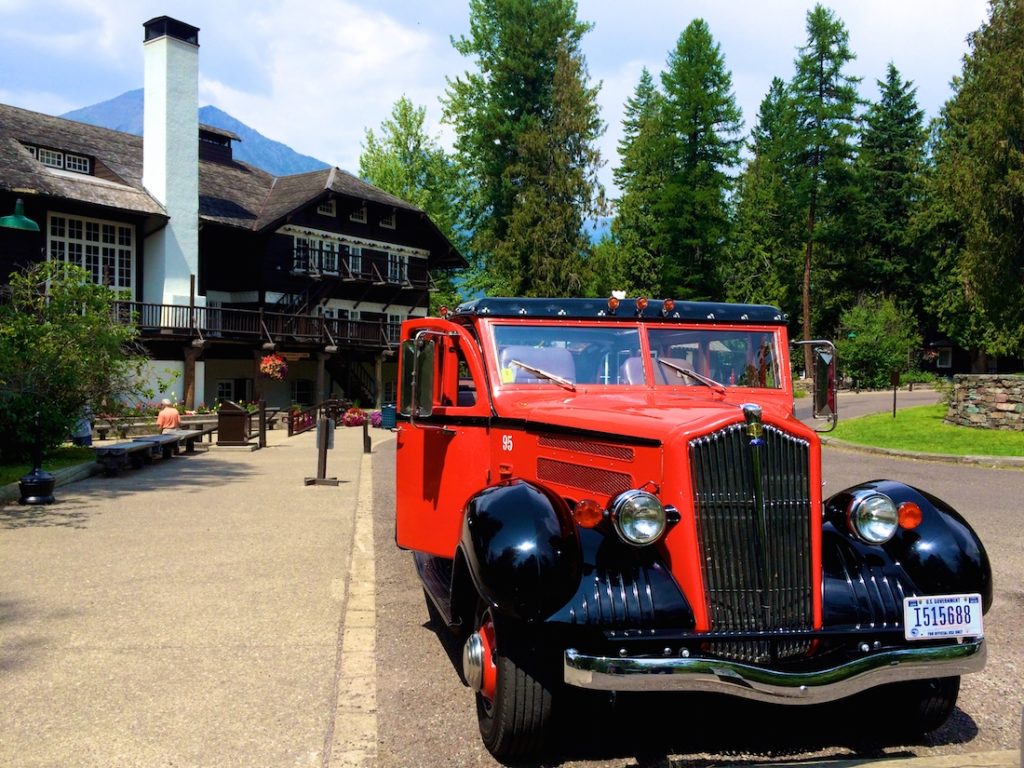
One of the top national parks in the U.S. to visit, Glacier National Park is called the Crown of the Continent. Protecting the Rocky Mountains and its endangered glaciers, it is located in northern Montana along the international border with Alberta, Canada. Visitors will find three mountain ranges, part of the Rocky Mountains, along with 130 named lakes. Stay a day, or explore for a week or more, here are the top things to do in Glacier National Park.
Glacier at a Glance
| Year Established: 1910 |
| Located: Montana |
| Size: over 1 million acres |
| Top Features: Going To The Sun Road |
Top Things to Do in Glacier National Park
-
Visit Glacier National Park Visitor Centers
-
Lake McDonald Valley
-
Going-to-the-Sun Road
-
Logan Pass
-
Rising Sun and St Mary
-
Many Glacier Valley
-
Two Medicine Valley
Visitor Centers in Glacier National Park
From park movies to maps to some of the best restrooms in the park, the visitor center is a popular spot in Glacier National Park. Park rangers are on hand for questions about the park.
Apgar Visitor Center
Located 2 miles east of the West Glacier Entrance. Open daily from mid-May to September and weekends only for the rest of the year. Hours are 9 a.m. to 4 p.m. Apgar Nature Center is housed in a 1929 log cabin and is open from mid-June to late August.
Logan Pass Visitor Center
Located along the Going-to-the-Sun Road. Open daily when the road clears in the summer until the end of September. It is the home of the popular Logan Pass Star Parties.
St. Mary Visitor Center
Located near the St. Mary’s entrance, it is open daily from late May to early October and features interpretive information on the American Indian Nations.
Glacier National Park 1 Day Itinerary
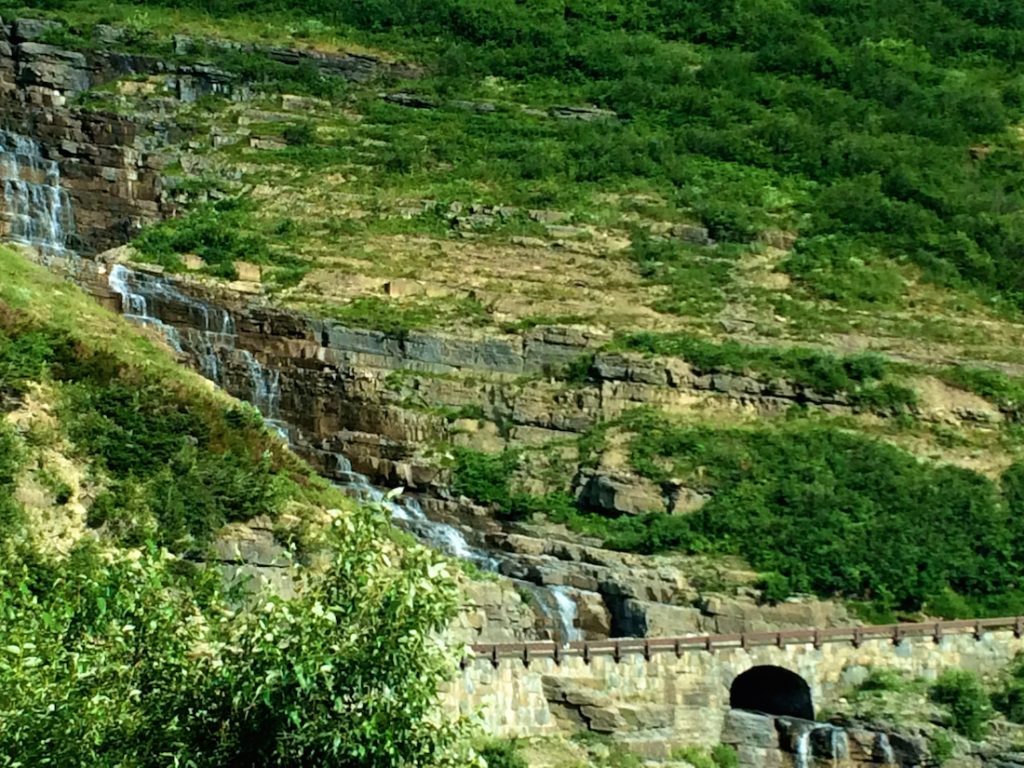
Lake McDonald Valley
Carved by glaciers, Lake McDonald is 10 miles long (16 km) and 500 feet deep (152 m) and is the largest lake in the park. Located near the Apgar Visitor Center, it’s a hub of activity in the summer on the western part of Glacier National Park.
Lake McDonald Lodge
The Lake McDonald Lodge, built in 1913 along the shore of Lake McDonald, is a classic Swiss chalet and a popular place to visit. The three-story lodge building features historic furnishings and log-style design elements, a hallmark of historic National Park Service lodges.
Visitors can walk through, and there are even places to eat (or grab a coffee, cocktail or quick snack) inside the lodge. Outside, there is a patio with rocking chairs overlooking the lake, which is a popular place for a quick break.
Hiking in Lake McDonald Valley
Trail of the Cedars—A 0.7-mile accessible trail
Apgar Bike Path—A 1.5-mile trail and level
Fish Creek to Apgar Trail—A 2.9-mile trail and gains 25 feet.
Lake MacDonald West Shore Trail—A 6.3-mile trail and mostly level
Avalanche Lake—A 2.3-mile one-way trail that gains 500 feet
Boating in Glacier
Guided boat tours in Glacier National Park are a popular activity during the summer months. Lake McDonald offers a boat cruise, though they are also offers at Many Glacier and Swift Current lakes on the east side along with Two Medicine in the southeast portion of the park.
Advance reservations and tickets are required.
Red Bus Tours
One of Glacier National Park’s iconic symbols is the Red Jammer, the restored White Motor Company touring buses from the 1930s. The Ford Motor Company rebuilt the buses, putting them on modern van chassis and converting each to use propane.
Glacier National Park offers a fleet of 33 red buses. Each bus offers a roll-top viewing roof and seats 16 passengers, with four on each row of bench seats. For west-side tours, the buses depart from Apgar Visitor Center, Village Inn at Apgar and Lake McDonald Lodge, along with locations outside Glacier National Park.
Reservations are required for this in-demand activity. Tours range from 4 to 8 hours and are round-trip tours.
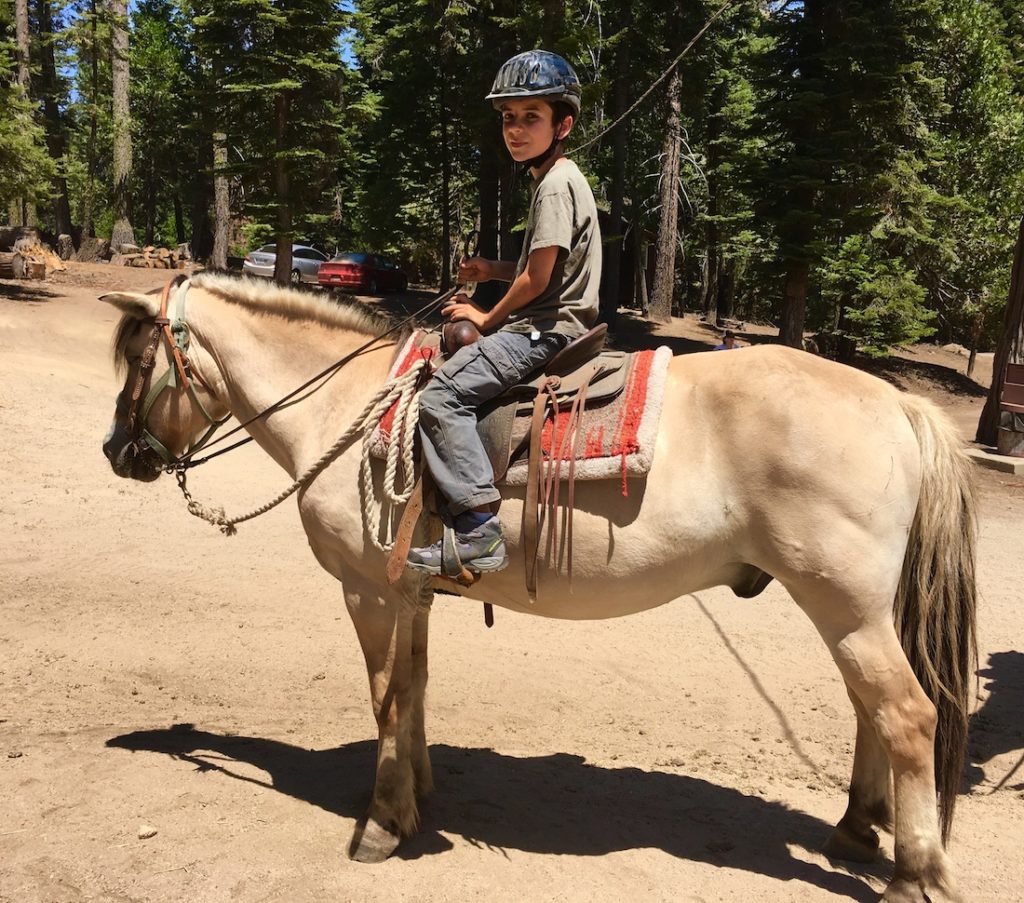
Horseback Riding in Glacier National Park
For another way to see the Crown of the Continent, visitors can take a horseback ride in Glacier National Park from Lake McDonald and Apgar. Rides range from one hour to all day. All-day horseback rides to Sperry Chalet are also available.
Going-to-the-Sun Road Scenic Drive
The scenic byway travels 50 miles (80 km) from the west entrance near the Apgar area across Glacier National Park to the St Mary entrance. The highest portion of the road closes for snow and usually opens in late June or early July and stays open until mid-October.
Construction was completed in 1932, providing better access into the wilderness that had previously been limited to the edges of the park. It was later named a National Historic Civil Engineering Landmark.
Details for the Going to the Sun Corridor
Driving the entire length of Going-to-the-Sun Road takes at least 2 hours without stopping, usually more due to summer construction delays along the way. Road restrictions: Vehicles and vehicle combinations (RVs and travel trailers) must be under 21 feet (6.4m) in length.
Details on the Vehicle Permits
To enter Glacier National Park from the West Side, a 3-day vehicle permit is required. This permit is in addition to the park’s 7-day entrance fee. It must be secured in advance via Recreation.gov. Each costs $2 per permit.
Permits are required from 6 a.m. to 3 p.m. during the busy summer season. For the west side of the park, permits will be required from May 24, 2024 until September 8, 2024.
Additionally, the Many Glacier entrance requires one-day vehicle passes from July 1 to September 8, 2024, to enter from 6 a.m. to 3 p.m., and the North Fork entrance requires a one-day vehicle permit from May 28, 2024, until September 8, 2024, to enter from 6 a.m. to 3 p.m.
For visitors with reservations inside the park, like lodging, camping and concessionaire-led tours, a permit is not required. For campers that secure a first-come, first-serve campsite, a permit can be obtained after registering.
Note: It is a different one day vehicle pass for each entrance.
ProTip: Cell coverage in Glacier National Park is non-existent, so online reservations need to be made before entering the park. Glacier National Park is not a destination that you can see without advance reservations.
Note: It is a different one day vehicle pass for each entrance.
Glacier’s Free Shuttle Bus
For travelers who didn’t get the required vehicle pass (or don’t want to drive over a mountain pass), there is a free shuttle between the Apgar Visitor Center and the St Mary Visitor Center. It runs daily from 8 a.m. to 7 p.m. from the west side of the park. From the east side of the park, it runs from 8 a.m. to 7 p.m. Shuttles depart every 15 to 30 minutes, depending on the stop. It is a first-come, first-served serivice and reservations aren’t accepted.
Since the route has vehicle restrictions, transfers are required to travel to Logan Pass. Passengers will disembark from the NPS bus and travel to Logan Pass in a smaller Sprinter van. The NPS advises shuttle riders to know the last shuttle departure times of the day, especially when crossing the entire park.
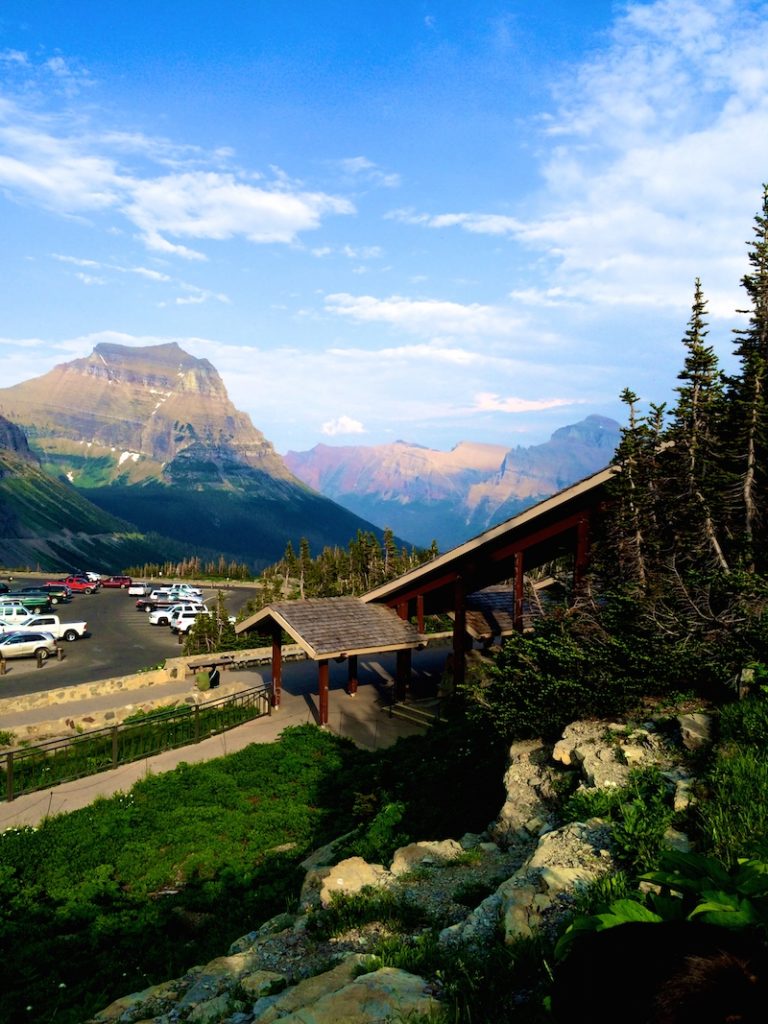
Logan Pass
On the way to Logan Pass, visitors will pass the Weeping Wall, a rock face with melting snow run-off glistening in the sun. The Garden Wall area is also visible, a rock face with planting clinging to its sides.
The highest point along the Going-to-Sun Road at 6,646 feet (2,025 m) is a popular area. Surrounded by peaks, find Reynolds Mountain and Clements Mountain.
Stop by the Logan Pass Visitor Center to explore the interpretive displays and look out for mountain goats that frequent this area. This is also a popular hiking departure point for glacier hikes.
Opens in late June or early July and remains open until October.
Hiking around Logan Pass
Hikers will be surrounded by wildflowers on the hike to the Hidden Lake Overlook. Mountain goats are also known to be found in this area of the park.
Hidden Lake Overlook—A one-way 1.4-mile hike with a 460-foot elevation gain.
Hidden Lake Nature Trail—A 2.6-mile hike, one-way with a 460-foot elevation gain, followed by a 780-foot drop to the lake.
Highline Trail—A 7.2-mile hike with a 624-foot elevation gain and a 253-foot loss.
Glacier Viewing
Most visitors want to see a glacier on their visit. Though Glacier National Park isn’t the best way to see glaciers.
For the easiest glacier viewing in the U.S., consider an Alaskan cruise that includes a visit to a tidewater glacier. In the lower 48 U.S. states, Washington’s North Cascades National Park offers more glaciers than Glacier National Park. Even nearby Grand Teton National Park offers glaciers.
To see glaciers from the Going-to-the-Sun Road, the Jackson Glacier is visible from the Going-to-the-Sun overlook, 5 miles east of Logan Pass. Other glaciers are visible on the east side of the park.
ProTip: Pack a pair of binoculars for the best glacier viewing without a hike.
National Parks in Washington
Rising Sun and St. Mary Lake
After Logan Pass, the road heads back down to the east side of the park. This area is anchored by St. Mary Lake and the Rising Sun area.
Rising Sun is “where the mountains met the prairies” and offers a good place for a hot meal along with lodging. It offers some signature hikes in the area along with waterfall viewing.
Hiking near St. Mary Lake
St. Mary Falls—A 0.8-mile hike (one-way) with a 260-foot elevation loss.
Sun Point Nature Trail—A 0.8-mile hike (one-way) with a 250-foot elevation loss.
Virginia Falls—A 1.6-mile hike (one-way) with a 260-foot elevation loss followed by a 285-foot gain.
Many Glacier Valley
Located on the eastern side of the park, Many Glacier Hotel and Swiftcurrent Motor Inn are located via a separate entrance. This is the location of several popular hiking including Grinnell Lake and Grinnell Glacier.
Many Glacier Hiking Trails
Grinnell Glacier and Swiftcurrent Pass are the main trailheads.
Swiftcurrent Nature Trail—A 2.5-mile loop around Swiftcurrent Lake and partially accessible
Bedrock Falls—A 1.8-mile hike with a 200-foot gain
Grinnell Lake Trail—A 4.6-mile hike with a 40-foot gain
Grinnell Glacier Trail—A 5.3-mile hike with a 1,600-foot gain that passes Lake Josephine
Ptarmigan Falls—A 2.7-mile hike with a 700-foot gain
Iceberg Lake—A 4.8-mile hike with a 1200-foot gain
Top Activities at Many Glacier
The Red Bus Tours depart from both Many Glacier Hotel and Swiftcurrent Motor Inn. Guests can take a Red Bus Tour of the east side of Glacier National Park and visit Two Medicine Lake. This tour also visits Wild Goose Island before completeing the loop back to Many Glacier.
Horseback riding trips of one and two hours are offered at the corral near the Many Glacier Hotel parking lot. Reservations and age and weight restrictions are required.
There is a boat cruise at Many Glacier that glides along the water of Swiftcurrent Lake and Lake Josephine. Reservations are required, and the Glacier Park Boat Company offers several departures a day during the summer.
Two Medicine Valley
Located on the southeastern part of the park, find Two Medicine lake along with camping and hiking.
Two Medicine Valley Hiking
Appistoki Falls—.A 6-mile trail that gains 260 feet.
Twin Falls—A 3.5-mile trail that gains 75 feet
Devils Tower National Monument in Wyoming

Fishing at Glacier National Park
Fishing in Glacier National Park doesn’t require a license, though regulations and requirements are in place to protect the park’s native aquatic species.
Consult the Glacier National Park’s fishing page for more information.
Biking in Glacier National Park
Cyclists are prohibited along Going-to-the-Sun Road from 11 a.m. to 4 p.m. from Apgar turn-off to Sprague Creek and Logan Creek to Logan Pass, heading east-bound during the summer season.
Night Sky Viewing in Glacier National Park
With dark skies overhead, Glacier National Park is an International Dark Skies Park. It offers night sky programming during the summer, especially the popular Logan Pass Star Parties. Check in at the visitor centers for more information on seasonal ranger programing.
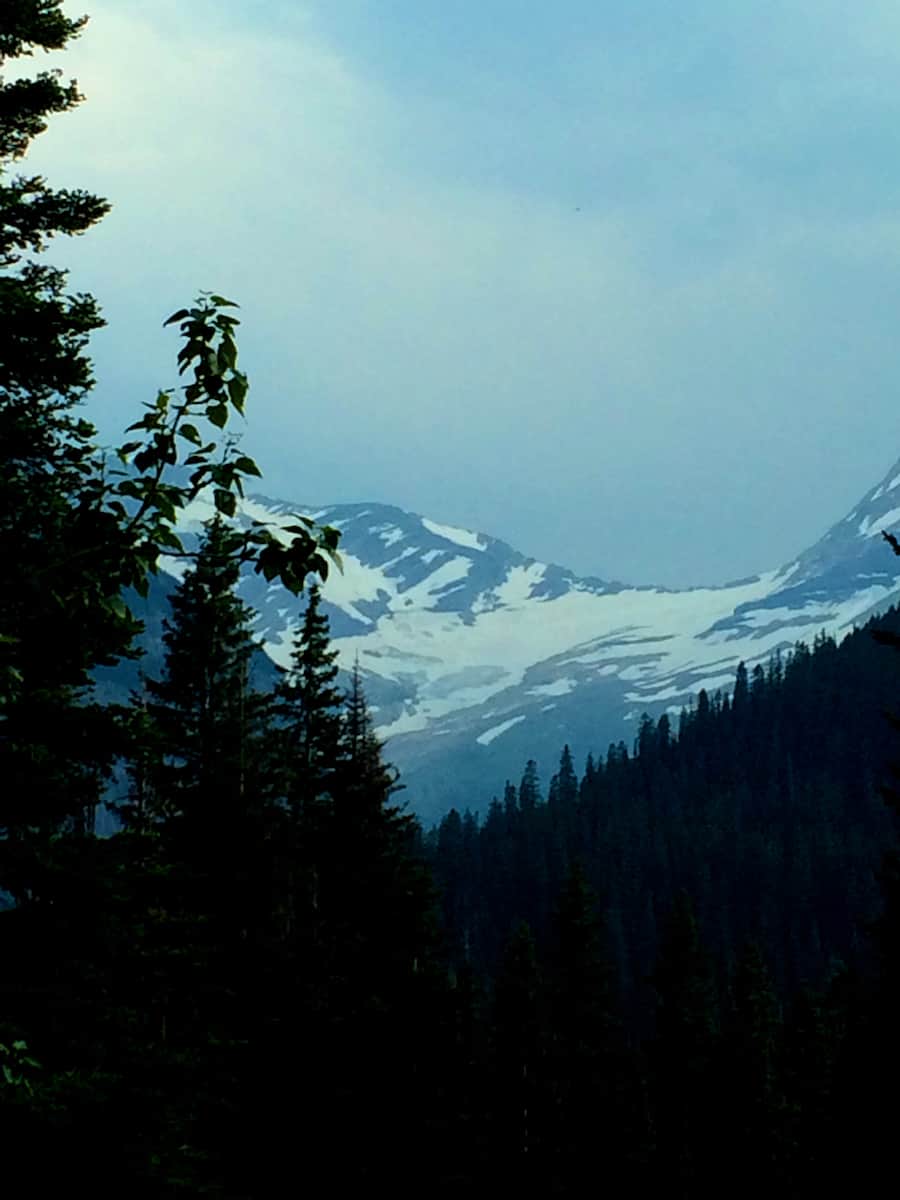
Glaciers in Glacier National Park
Glaciers reign in the park. In 1850, 80 glaciers were counted in the area that would become Glacier National Park. As of 2015, only 26 glaciers remain in the park and this is the last year with satellite imagery of Glacier National Park.
See Jackson Glacier from the Going-to-the-Sun Road Overlook, located 5 miles east of Logan Pass. Salamander Glacier is visible when entering the Many Glacier area and looks like a Salamander.
Though seeing glaciers in Glacier National Park isn’t easy. For the best glacier viewing, consider an Alaskan Cruise. Washington’s North Cascades National Park offers glacier viewing as well.
Other glaciers require multi-mile day hikes.
Junior Ranger Badges to earn on an Alaskan Cruise
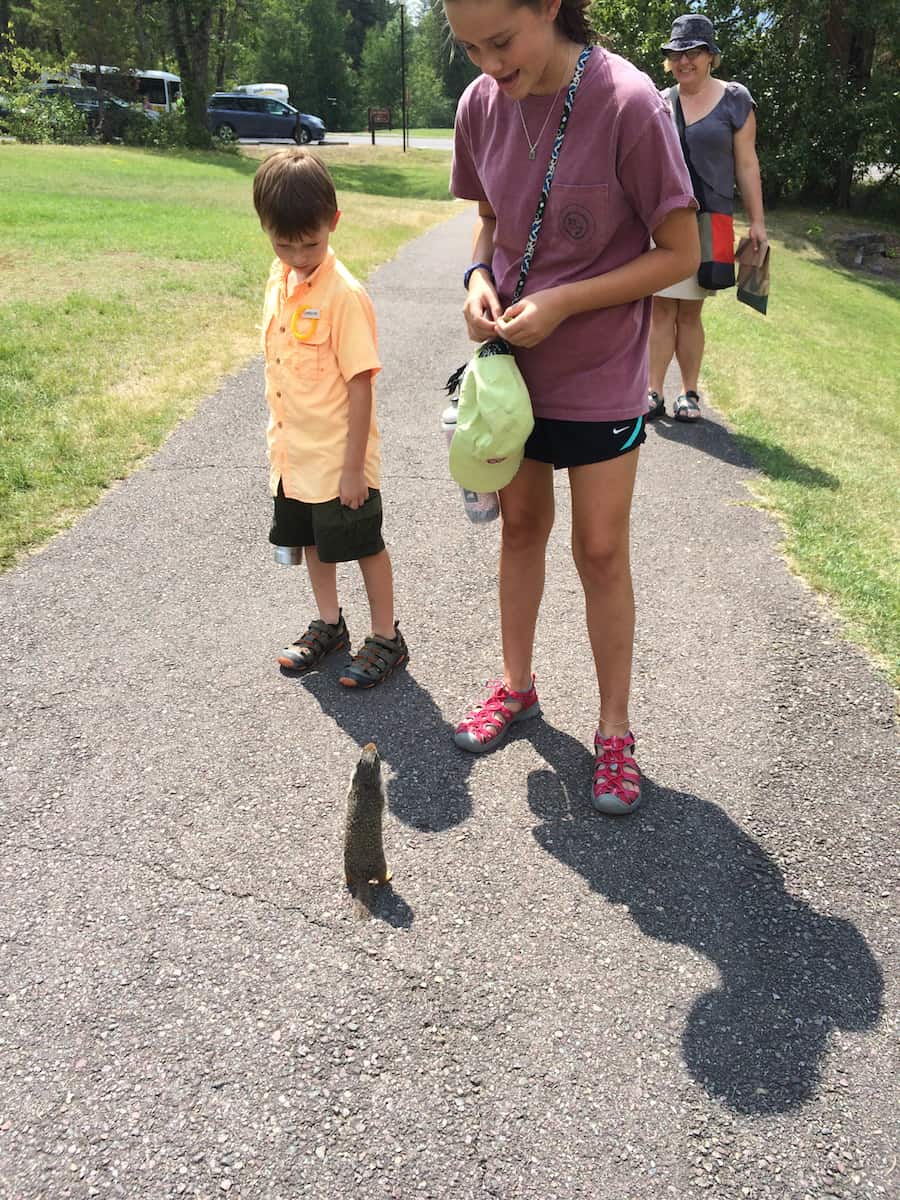
Wildlife Viewing in Glacier National Park
- Bears—Grizzly and black
- Beaver
- Big horn sheep
- Elk
- Lynx
- Mountain goats—the park symbol
- Mountain lions
- Wolverines
Bears in Glacier
Glacier National Park is home to the largest grizzly bear population in the continental U.S. Though encounters are rare, Park Rangers offer some guidelines to reduce bear encounters:
- Remain observant.
- Hike in groups.
- Keep campsites clean.
- Make noise while hiking by wearing bear bells and talking.
- Don’t approach bears or let bears approach you.
- If a bear notices you, you are too close. Back away slowly, and if attacked, fight back. Don’t play dead.
Wildflowers in Glacier National Park
Find nearly 1,000 wildflower species in Glacier National Park, like the Trillium, Glacier lilies or Beargrass. With a short season, growing and blooming in the summer only, plants have adapted to survive, like the Butterwort that eats insects.
Most wildflowers bloom in the summer in Glacier National Park. Find more flowers at the lower elevations.
Best Time to Visit Glacier National Park
Since it is located in northern Montana and its main features are glaciers and the Rocky Mountains, the best and easiest time to visit is during the summer months.
The seasonal Going-to-the-Sun road opens in late June or early July. The summer offers wildflowers and animal viewing. All the campgrounds and lodges are also open.
Spring in Glacier National Park
With the majority of the roads still covered with snow, visitors find reduced services in the park. The visitor centers and lodging remain closed until mid-May at the earliest. Camping is available at the Apgar and St. Mary campgrounds.
Wildlife is more active in the spring than in winter.
Fall Color in Glacier
Find fall color favorite Aspen in the park. The fall color season starts early and leaves change colors starting in mid-September. In addition to Aspen, find Western Larch trees that turn a golden color.
Wildlife is more active during the fall and it’s a popular mating season.
The park remains open year-round for winter recreation, like snowshoeing. Primitive camping is available at Apgar and St Mary after the other campgrounds close for the season.
Kids in Glacier National Park
The Junior Ranger Program is the go-to program for families to learn more about the Glacier National Park. It’s free and takes about two hours to complete. My kids love the badges that the Rangers present them after completing their booklet.
You can pick up a booklet at any visitor center, complete the age-appropriate activities, and return for a souvenir badge and certificate.
Guide to Junior Ranger Badges
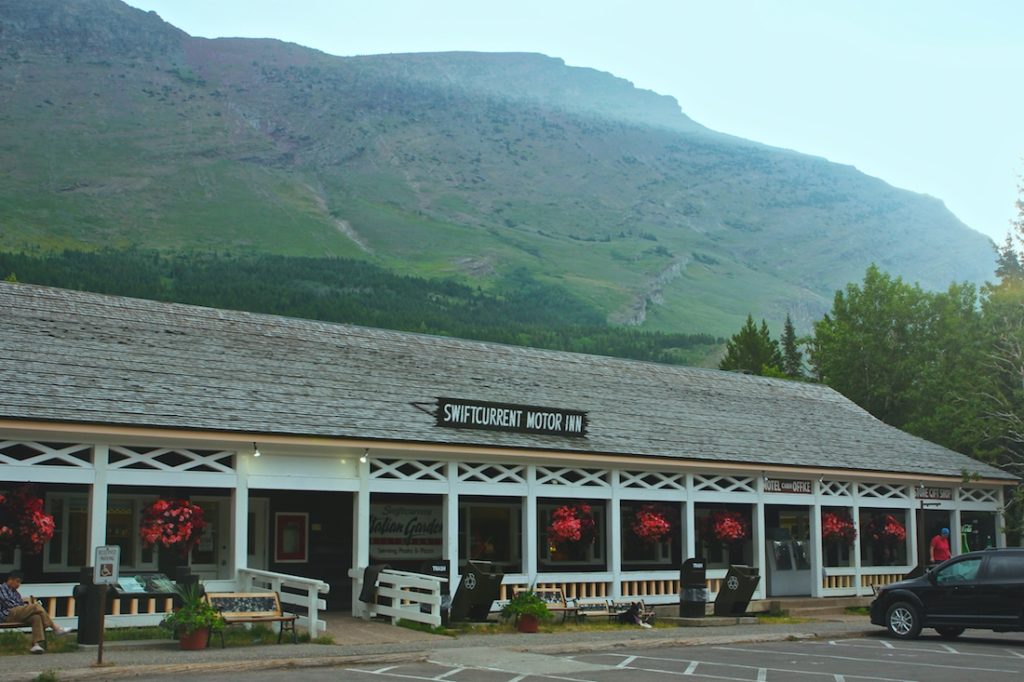
Where to Eat in Glacier National Park
Apgar Village
Since 1946, Eddie’s Cafe and Mercantile has offered Glacier classics breakfast, lunch and dinner along with its Huckleberry ice cream. Open from 7 a.m. to 9 p.m. during the season.
Lake McDonald Lodge
Jammer Joe’s Grill & Pizzeria serves a lunch buffet, soups, salads, sandwiches and create-your-own pizza. Open daily from 11:30 a.m. to 9 p.m. during the season.
Lucke’s Lounge offers a bar menu burgers, sandwiches, salads along with appetizers. Find a full bar along with regional wines and micro-brews. During the season, the restaurant is open daily from 11 a.m. to 10 p.m.
Russell’s Fireside Dining Room serves a breakfast buffet along with continental options. Find a lunch and dinner menu infused with local flavors, like elk burgers. Open daily from 6:30 a.m. to 9:30 p.m. with hours for breakfast, lunch and dinner during the season.
Rising Sun Motor Inn & Cabins
Two Dog Flats Grill serves up American favorites like build-your-own burgers, soups, sandwiches and salads. Open daily at 4 – 9 p.m. for dinner during the season.
Many Glacier Hotel
Heidi’s Snack Shoppe brews up espresso drinks along with several grab-n-go items like baked goods and sandwiches.It is open daily from 6:30 a.m. to 9 p.m. during the season.
Swiss Lounge features a small plates menu with salads, sandwiches and burgers. Enjoy a cocktail, wine or micro-brew from the full bar. Open daily from 11 a.m. to 8 p.m. during the season.
Ptarmigan Dining Room starts the day with a continental or deluxe breakfast buffet. Find a lunch and dinner menu stocked with local flavors, like smoked trout and bison short ribs. Open daily from 6:30 a.m. to 9:30 p.m. with hours for breakfast, lunch and dinner during the season. Reservations are not accepted.
Swiftcurrent Motor Inn & Cabins
Nell’s at Swiftcurrent Restaurant serves up American breakfast favorites, like egg dishes and cereal. Lunch and dinner menus feature burgers, wraps, pizzas and salads. Open daily from 7 a.m. to 10 p.m. with hours for breakfast, lunch and dinner during the summer.
Picnicking in Glacier National Park
Find developed picnic areas with tables in the following areas.
- Swiftcurrent
- Rising Sun
- Sun Point Nature Trail
- Avalanche Creek
- Sprague Creek
- Fish Creek
Find general stores located at Apgar’s Eddie’s Mercantile, Lake McDonald’s Lodge camp store, Swiftcurrent’s camp store, Rising Sun’s camp store and Two Medicine’s camp store.
Top U.S. Destinations for Families
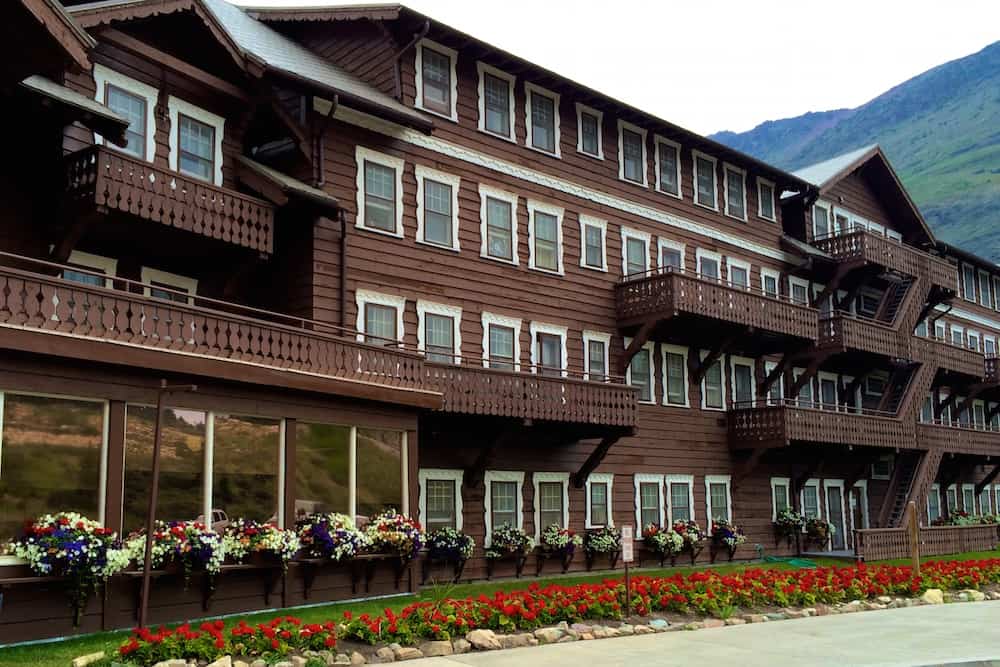
Where to Stay inside Glacier National Park
Each of the lodges and motor inns offers activities like hiking or organized tours. Properties near lakes offer boating. True to National Park lodging, the properties in Glacier do not offer TV and air-conditioning.
Apgar Village Lodge and Cabins
Just inside the West Entrance of Glacier National Park, Apgar Village offers motel rooms and equipped cabins for budget travelers. Each cabin is unique, and some offer equipped kitchens with refrigerators, ranges and coffee makers. Motel rooms feature one or two queen beds.
Open seasonal from mid-May until early October. Reservations required.
Village Inn Motel
Located a few miles inside of the west entrance in the Apgar Village, the Village Inn motel was built in 1956. Find units equipped with basic kitchens as well as family units that accommodate five or six people.
Open seasonal from mid-May until late September. Reservations required.
Lake McDonald Lodge
A classic Swiss chalet along the shore of Lake McDonald, it was built in 1913 and features a three-story lodge building with lodge rooms. The interiors feature historic furnishings and log-style design elements.
Also, find cabins, a hostel-style dormitory and Cobb House, a collection of suites. Open seasonal from early May until late September. Reservations required.
Motel Lake McDonald
Located 10 miles inside Glacier’s west entrance, Motel Lake MacDonald is along the shores of the largest lake in Glacier. It offers basic motel rooms with one or two double beds with private bathrooms.
Open seasonal from early June until mid-September. Reservations required.
Many Glacier Hotel
Built by Great Northern Railway in 1914 and 1915, it’s the largest property in Glacier National Park. Inside its central lobby, find National Park Service parkitecture elements throughout, like rough-hewn logs used for columns.
The Many Glacier Hotel features 205 guest rooms, two suites and seven family rooms. All rooms have private bathrooms.
Open seasonal from early June until mid-September. Reservations required.
Swiftcurrent Motor Inn
Located within a mile of Many Glacier Hotel, find 95 cabins, some historic, and motel rooms along with restaurant and camp store.
Open seasonally from early June until mid-September. Reservations required.
Rising Sun Motor Inn
West of St. Mary Visitor Center, Rising Sun Motor Inn was built in 1940 and renovated in 2015. It offers 72 motor lodge rooms along with cabins. Find a restaurant and a general store in the complex.
Open seasonally from mid-June to mid-September. Reservations required.
Sperry Chalet
Originally built in 1914 by the Great Northern Railway, Sperry Chalet was completely gutted by fire in 2017. The NPS reconstructed the historic building and it reopened in 2020. It is the more comfortable of the two backcountry chalets.
Located 7 miles (11 km) from Lake MacDonald and only accessible by horse or hiking a 6.5-mile (10.4 km) trail. Reservations are required for private rooms without electricity, heat or running water. A restroom is in an outbuilding with running cold water. No showers. Meals are on the American plan (provided).
Granite Park Chalet
Another backcountry chalet built in the Great Northern Railway in 1914, Granite Park Chalet is on the Highline Trail. This chalet doesn’t include a restaurant and beds with linens though a linen service is provided along with a freeze-dried meal service.
No running water, and the restroom is a pit toilet. Drinking water is available for purchase.
Camping in Glacier National Park
Find 13 campgrounds in Glacier National Park.
Apgar Campground
- Year-round with winter primitive camping
- First-come, first-served and largest campground
- 194 Sites with 25 sites with a 40-foot RV limit
- Potable water with flush toilets, sinks and showers during summer
Avalanche Campground
- Summer only
- First-come, first-served
- 87 sites with 50 sites with a 26-foot RV limit
- Potable water with flush toilets and sinks
Bowman Lake Campground
- Summer only
- First-come, first-served
- 46 sites, no RVs
- Potable water with vault toilets
Cut Bank Campground
- Summer only
- First-come, first-served
- 14 sites, no RVS
- No water
Fish Creek Campground
- Summer only
- Reservations recommended
- 178 sites with 18 sites with a 35-foot RV limit
- Potable water with flush toilets, sinks and showers
Kintla Lake Campground
- Summer only
- First-come, first-served
- 13 sites, no RVs
- Potable water with hand pump and pit toilet
Logging Creek Campground
- Summer only
- First-come, first-served
- 7 sites, no RVs
- No water
Many Glacier Campground
- Summer only
- Reservations Recommended
- 109 sites with 13 sites with a 35-foot RV limit
- Potable water with flush toilets, sinks and showers
- Dump station
Quartz Creek Campground
- Summer only
- First-come, first-served
- 7 sites, no RVs
- No water
Rising Sun Campground
- Summer only
- First-come, first-served
- 84 sites with 10 sites with a 25-foot RV limit
- Potable water with flush toilets and sinks
Sprague Creek Campground
- Summer only
- First-come, first-served
- 25 sites, no RVs
- Potable water with flush toilets, sinks and showers
St. Mary Campground
- Summer only
- Reservations Recommended
- sites with 50 sites with a 26-foot RV limit
- Potable water with flush toilets and sinks
Two Medicine Campground
- Summer only
- First-come, first-served
- 100 sites with 10 sites with a 35-foot RV limit
- Potable water with flush toilets and sinks
- Dump station
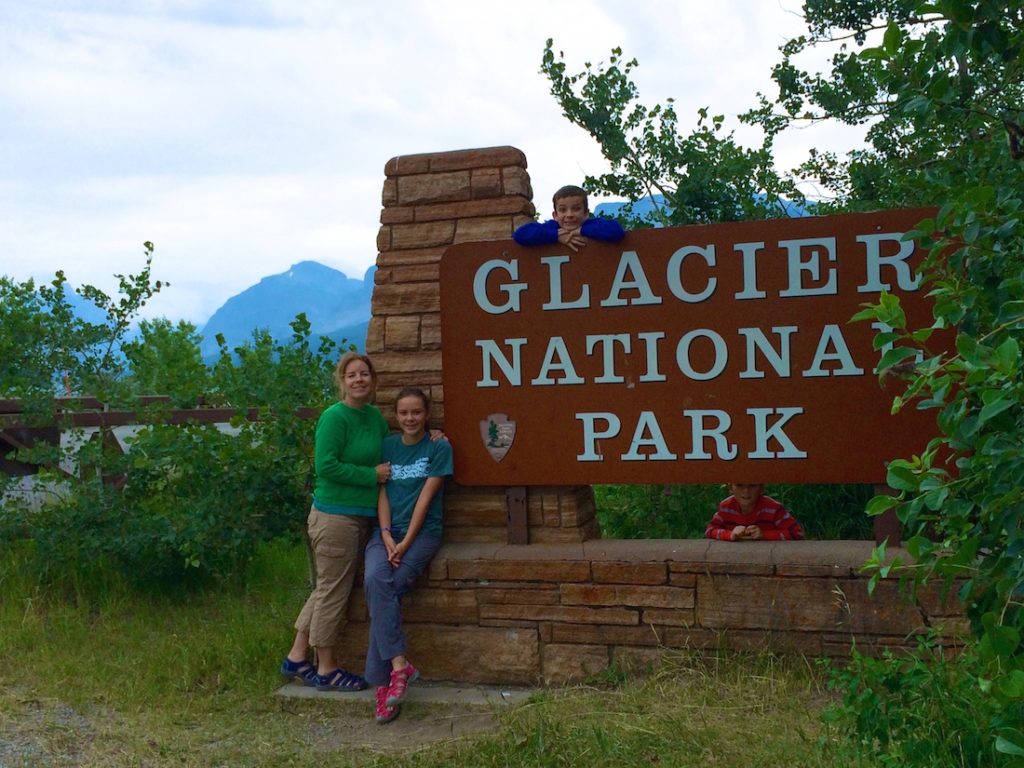
History of Glacier National Park
European trappers arrived in the 1800s after the Louis and Clark Expedition of 1804 to 1806. Interest in preserving the area came early, before the formation of the National Park Service in 1916.
George Bird Grinnell hired a guide for a hunting trip in 1885. Soon after he and railroad president Louis Hill proposed the area be protected a national park. The Boone and Crockett Club helped secure the national park status in 1910 by President William Howard Taft.
The Great Northern Railway
In 1891, the Great Northern Railway crossed the Continental Divide at Marias Pass, just south of Glacier National Park. Shortly after in 1910, the area was dedication a national park.
The Great Northern Railway started construction on lodges and chalets to promote tourism and train travel to the area. Nine chalets were constructed and only three remain, Belton, Sperry and Granite Park. Great Northern Railway built a couple lodges, all utilizing design cues from Swiss architecture, including Many Glacier Hotel and Glacier Park Lodge.
Since it shares a border with Parks Canada’s Waterton Lakes National Park, the two countries agreed to manage the land in collaboration. Created in 1932 this area became the first international peace park in the world.
Additionally, Glacier National Park is a UNESCO World Heritage Site and a Biosphere Reserve. It is also an International Dark Skies Park, offering dark skies for night sky viewing along with light mitigation.
The People of Glacier National Park
People have been recorded in the area for over 10,000 years. The mountains of Glacier divided people since it’s snowbound for the majority of the year.
The Blackfeet
Located on the eastern side of Glacier National Park, the Blackfeet Nation live on the grasslands and prairies. Today, the Blackfeet Nation has a 1.5-million acre reservation, the largest in Montana. The Blackfeet people own and operate several tourism-based businesses on the eastern portion of the park.
The Flathead
Located on the western side of Glacier National Park, the Salish, Pend d’Oreille and Kootenai lived on the more forested western portion. Today, descendants live on the 1.3-million acres confederated Salish and Kootenai Flathead reservation, along the Flathead River.
The Civilian Conservation Corps
A group of young men arrived at Glacier National Park in 1933. Part of President Roosevelt’s Works Progress Program, the Civilian Conservation Corps worked on conservation projects across the U.S.
During their tenure, the eight CCC camps were established in the park. They worked on clearing the debris from forest fires in 1929 and 1936. The CCC also laid telephone cable to Logan Pass. Additionally they developed camp grounds within the park.
Weather in Glacier National Park
Winter: Highs 30s F (single digits C), Lows teens (-single digits C)
Spring: Highs 50s F ( teens C), Lows 30s (single digits C)
Summer: Highs 70s F (20s C), Lows 40s (single digits C)
Fall—Highs 40s F (single digits C), Lows 20s (-single digits C)
Precipitation averages between one and three inches year-round. Snow can fall at any time of the year. On average, temperatures are 10 to 15F degrees cooler at higher elevations.
Waterton Glacier International Peace Park
Sharing an international border with Canada, Waterton-Glacier National Park adjoins the U.S. Glacier National Park. It’s home to the iconic Prince of Wales Hotel, along with camping, hiking and boating. It’s also a UNESCO World Heritage Site.
A seasonal border crossing is located within the park. Exit Glacier National Park and head north on Chief Mountain Highway (MT Hwy 17/AB Hwy 6). Typically the crossing opens in mid-May and closes for the season at the end of September.
Drivers must have a valid driver’s license with proper vehicle registration and insurance. Since this is a land crossing, a valid U.S. passport book isn’t required; a U.S. passport card can be used.
Items Forbidden to cross into Canada that National Park travelers might have.
-
- Fresh fruit
- Firewood
- Bear Spray
What You Need to Know to Drive into Canada
U.S National Parks Located Nearby
Yellowstone National Park is about 400 miles south of Glacier. Many visitors explore both parks in a National Parks road trip.
Gateway Towns
It’s always best to load up on essentials before heading into a national park. Gas is not for sale in Glacier National Park, so top off your tank before entering the park.
West Glacier
Find a host of lodging just outside of the west entrance of Glacier National Park, like the historic Belton Chalet along with RV parks. West Glacier offers an assortment of dining along activities including golf and outdoor outfitters.
St. Mary
Located on the eastern side of the Glacier National Park, find lodging, RV parks along with gas stations and small grocery store. St. Mary is the smaller of the two main gateway towns.
Glacier National Park Shuttle
During the summer, Glacier National Park operates a seasonal shuttle with numerous stops at popular destinations. With limited parking in some areas, the shuttle offers a popular option for hikers.
Find shuttle stops at Visitor Centers, Campgrounds, and Lodges, along with popular hiking trailheads. Check in with the Visitor Center for the most up-to-date shuttle information.
Getting To Glacier National Park
Glacier Park International Airport (FCA) in Kalispell, Montana is the closest airport to Glacier National Park. It’s serviced by Alaskan Airlines, Delta Air Lines and United Airlines.
Take the Amtrak to Glacier National Park on the Empire Builder line that travels from Chicago to Seattle, Washington, or Portland, Oregon. Find Amtrak stations at West Glacier and East Glacier, and Amtrak offers vacation packages.
Glacier National Park is open 365 days a year, 24 hours a day. Admission is $35 for a 7-day pass for a private vehicle. If visiting several national parks within 12 months, consider an American the Beautiful annual pass.
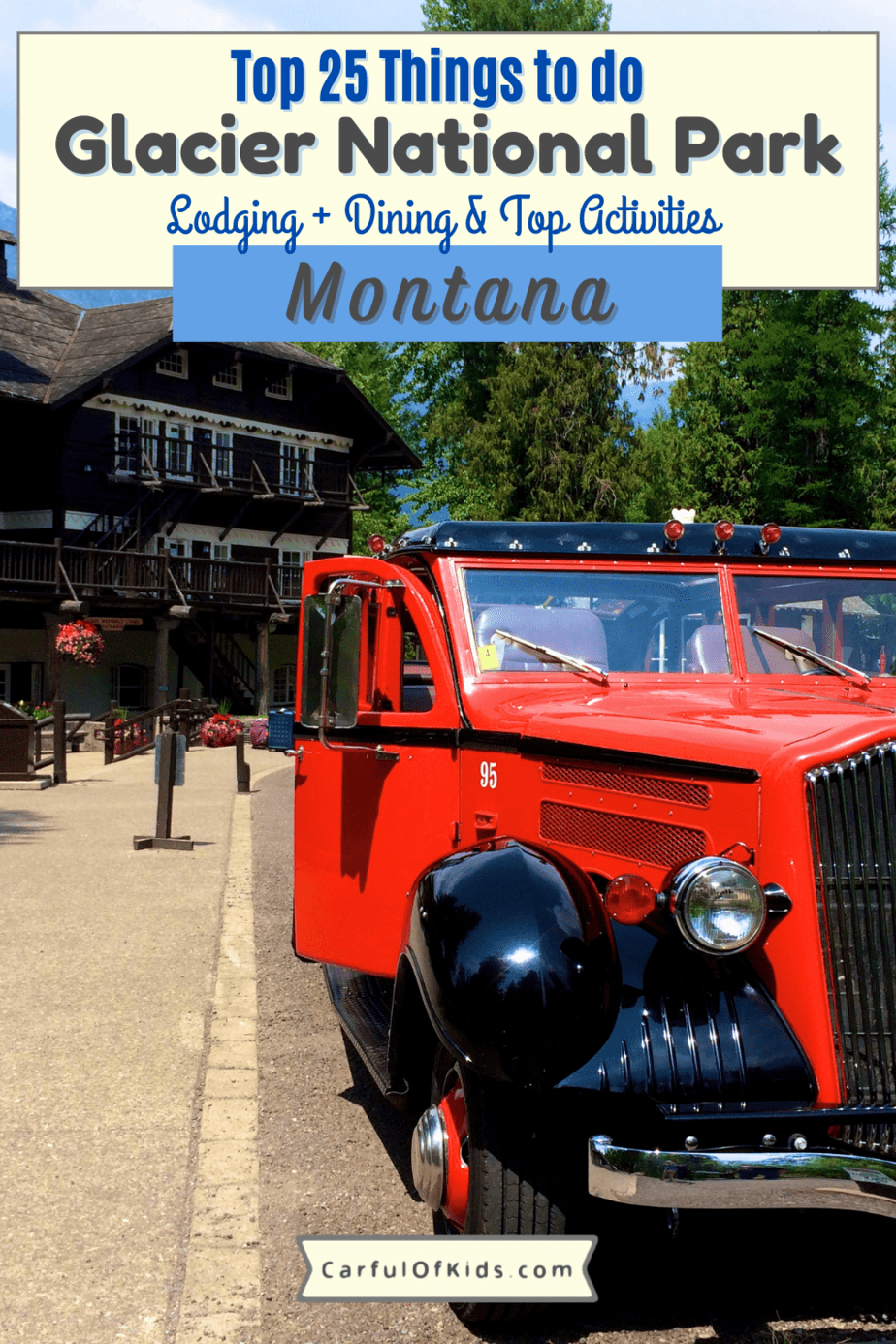

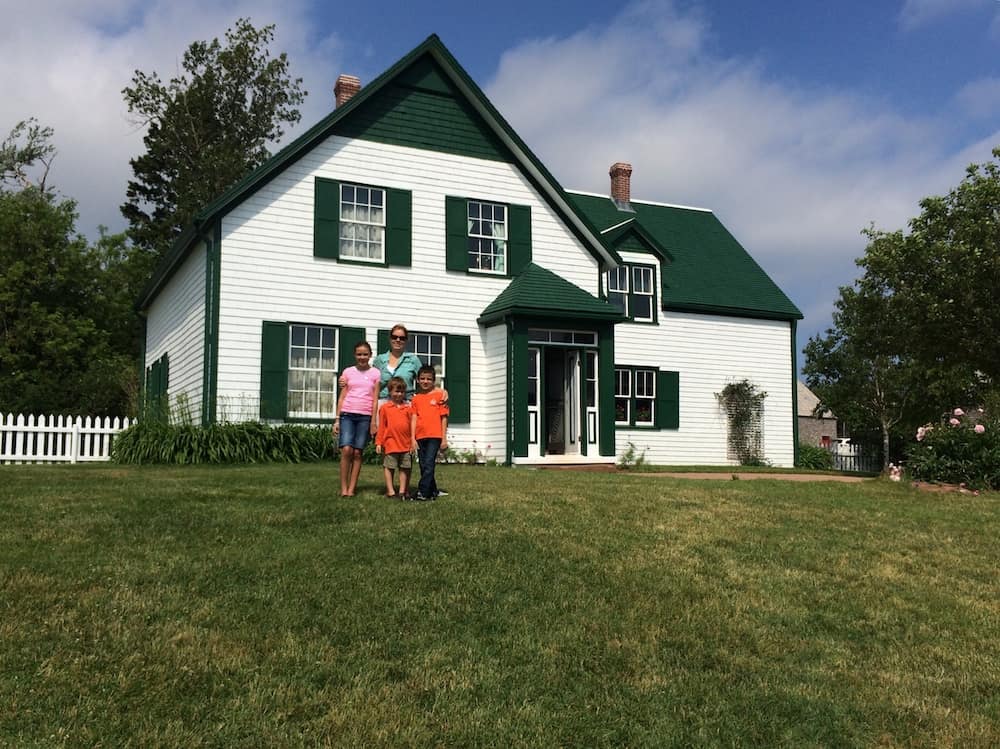
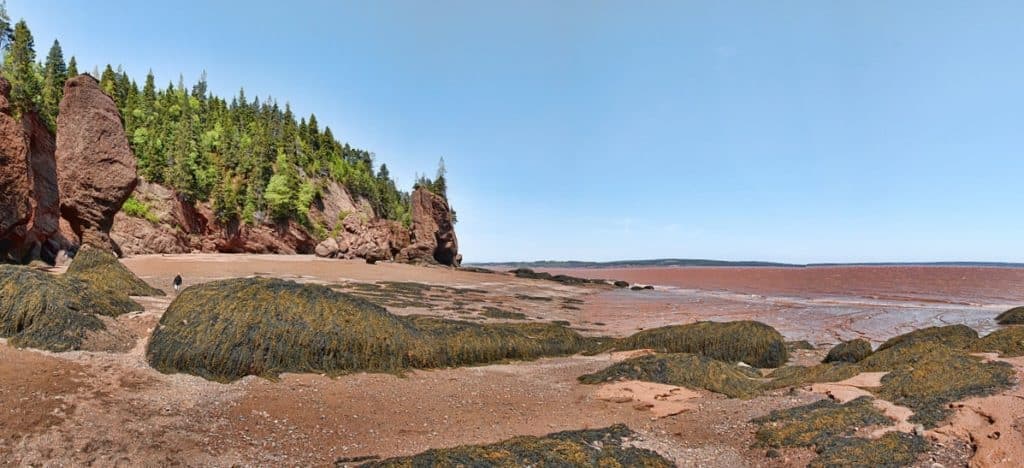
Comments are closed.